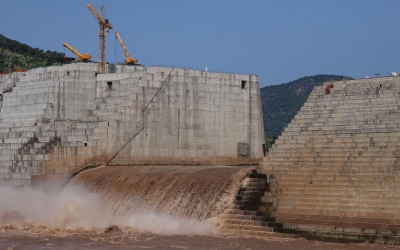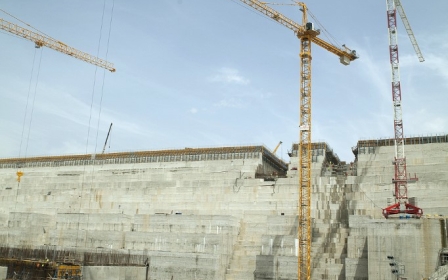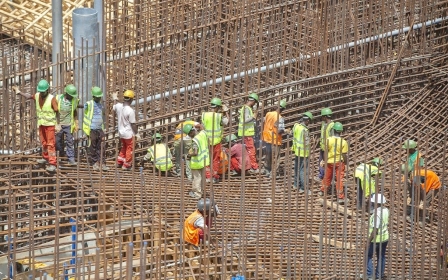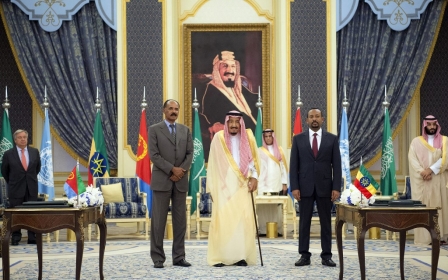Ethiopia's prime minister warns of war with Egypt over dam project
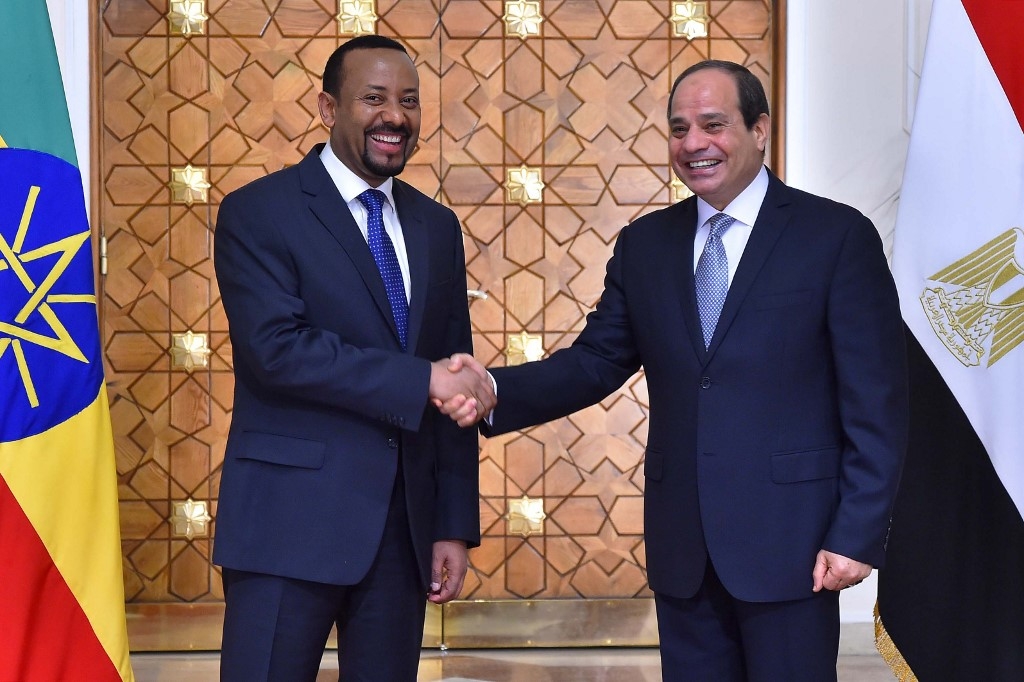
Ethiopia's Nobel Peace Prize-winning prime minister Abiy Ahmed said on Tuesday that his country is capable of mobilising millions to fight Egypt over a disputed dam project, but that talks are the best means of resolving the conflict.
'If some could fire a missile, others could use bombs. But that’s not in the best interest of all of us'
- Ethiopian Prime Minister Abiy Ahmed
The 43-year-old - Africa’s youngest leader - delivered his remarks in his first parliamentary question-and-answer session since winning the Nobel Prize on 11 October for his peacemaking efforts with neighbouring Eritrea.
“Some say things about use of force [by Egypt]. It should be underlined that no force could stop Ethiopia from building a dam,” Ahmed was quoted as saying by the Associated Press.
“If there is a need to go to war, we could get millions readied. If some could fire a missile, others could use bombs. But that’s not in the best interest of all of us.”
Later on Tuesday, Egypt said it had accepted a US invitation to a meeting of foreign ministers over the project.
New MEE newsletter: Jerusalem Dispatch
Sign up to get the latest insights and analysis on Israel-Palestine, alongside Turkey Unpacked and other MEE newsletters
The meeting of foreign ministers of Egypt, Ethiopia and Sudan, the three nations directly affected by the project, will be held in Washington, Egypt's foreign ministry said, without stating a date or if the other nations had agreed.
"Egypt has received an invitation from the US administration," the ministry said in a statement, adding, "an invitation that Egypt immediately accepted".
Egyptian foreign ministry officials said earlier this week that Cairo would soon push Ethiopia to agree to an external mediator to help resolve a deadlock over the disputed Grand Ethiopian Renaissance Dam (GERD) being built on Ethiopia's Blue Nile.
Egyptian President Abdel Fattah el-Sisi is due to meet Ahmed during a Russian-African summit in Sochi on Wednesday.
Egypt sees the $4bn dam as an existential risk, fearing it will threaten its scarce water supplies and power generation at its own dam in Aswan.
After years of three-way talks with Ethiopia and Sudan, Cairo says it has exhausted efforts to reach a pact on conditions for operating the dam and filling the reservoir behind.
Ethiopia says the dam is crucial to its economic development and has denied that the talks between the three are stalled, accusing Egypt of trying to sidestep the process.
At loggerheads
For years, Egypt has viewed the Nile as its own, saying it has "historic rights" to the river, guaranteed by treaties from 1929 and 1959. The country and its population of 100 million rely on the river for 90 percent of their freshwater.
Officials have said they want the dam's reservoir to release a higher volume of water than Ethiopia is willing to guarantee, among other disagreements.
At one stage, Egyptian politicians talked of bombing the dam in order to preserve what they viewed as their historical right to the river's waters, MEE has reported.
Ethiopia has defended its right to build the dam, now around 70 percent complete, with the declared aim of providing electricity for its 100 million people.
Egypt is faced with worsening water scarcity and says it is already working to reduce the amount it uses in agriculture.
Scarcity now
Hydrologists consider a country to be facing water scarcity if supplies drop below 1,000 cubic metres per person per year.
Egypt currently has around 570 cubic metres per person per year, a figure that is expected to drop to 500 cubic metres by 2025, without taking into account any reduction in supply caused by GERD, Egyptian officials said.
Egypt may experience freshwater and energy shortages by 2025 amid the Nile reductions, the UN predicts.
Recent proposals put forward by Egypt for a flexible reservoir-filling process and a guaranteed annual flow of 40 billion cubic metres were rejected by Ethiopia, which is expected to start filling the dam's reservoir next year.
Middle East Eye delivers independent and unrivalled coverage and analysis of the Middle East, North Africa and beyond. To learn more about republishing this content and the associated fees, please fill out this form. More about MEE can be found here.


